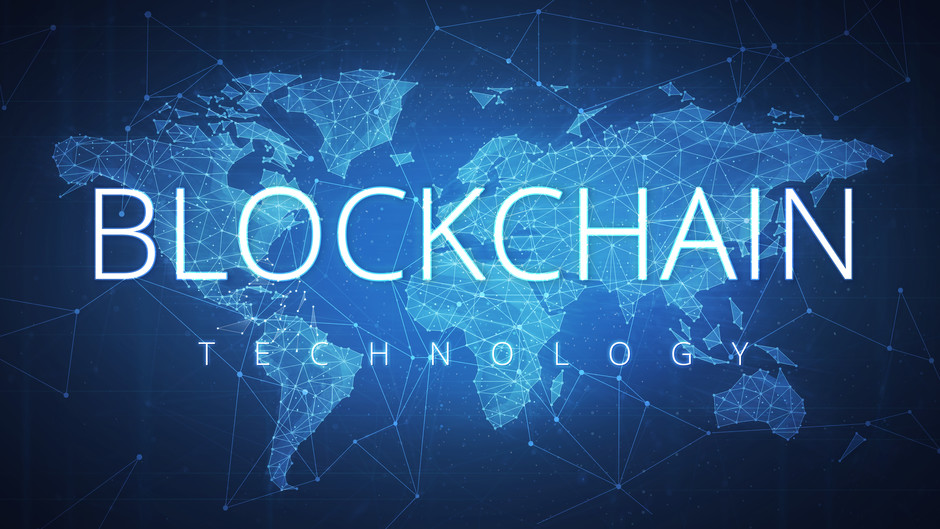In today’s digital world everyone from a school going kid to homemakers to professionals across the globe have access to the internet, a smartphone or computer which is making digital security the biggest threat. Whenever a person is on the internet, there is always this thought in mind asking “is
someone watching over my shoulder” and this is the threat everyone has while using the internet. This vulnerability is experienced every time one uses the internet either through a smartphone or computer/ laptop because today banking has been made so simple that I don’t need to be in front of a computer or laptop to carry out any banking transactions; It can simply be done using my phone. The question is how secure are these banking transactions that I make using my phone? To overcome this threat faced by the digital world and the internet, a group of people known by the pseudonym, Satoshi Nakamoto developed Blockchain originally for the digital currency, Bitcoin.
The blockchain is an open, distributed ledger that can record transactions between two parties efficiently and in a verifiable and permanent way”. Blockchain allows digital information to be distributed over the internet without it being copied, this transformed or became a backbone for a new type of internet. So in simple terms, blockchain is like a huge decentralized ledger, where information can be sorted and accessed by anyone and everyone on the internet, or in other words, information is stored in a secured network in the form of blocks that are identical across the network. The blockchain network automatically checks in with itself every ten minutes like a self- auditing system. The Blockchain network is typically managed by a peer-to- peer network, collectively adhering to a protocol for validating new blocks.
Once a transaction is recorded, the data in any given block cannot be altered without the alteration of all subsequent blocks and cooperation from the majority within the network. Transactions once stored in the Blockchain are permanent, they cannot be hacked or manipulated. The world of supply chain, transportation and logistics never rests.. It is one project after another. Years ago supply chain was simple because it either involved limited products, individuals or entities, today supply chain and logistics has evolved and can be extraordinarily complex spanning over hundreds of stages, multiple locations, loads of invoices and payments, involving several individuals and spreading over months. This complexity is driving supply chain and logistics industry towards implementing blockchain technology. The blockchain which is a decentralized distributed digital ledger has many applications in the supply chain and logistics industry
. It can be used for any exchange from tracking (purchase orders, receipts, shipment notifications, or other trade-related documents), agreements, contracts and even payment. Since every transaction is recorded on a block and across multiple copies of the ledger that are distributed over many nodes or computers, it is highly transparent. The security is unchallenged because every block links to the one before it and after it. Today more and more supply chain and logistics companies are slowly switching over to the blockchain technology simply because of a few reasons mentioned below:-
• Better Freight Tracking – Most trucking companies invest considerably in efficient tracking systems, but scaling these systems tonewer technology is proving to be difficult. With blockchain technologynone of these issues exist in addition, data contribution andauthentication can be done by the entire network.
• Smart Contracts – Smart contracts and self-executing tasks that are coded using blockchain technology and executed when certain conditions are met. Hence it completely cuts out the middleman, paperwork and unnecessary administrative functions, making it most impactful and feature rich for the freight industry.
• Better Inventory Management – By recording the quantity and transfer of assets as they move across or between the supply chain nodes and by linking physical goods to serial numbers, bar codes, digital tags etc…
• Information sharing – Supply chain relies on accurate information. When information received is not accurate it gives rise to increase in cost and inefficiencies.
Suppliers and vendors across the supply chain are looking for accurate information, when manufacturing process delays information the whole supply chain in the downstream gets affected, with blockchain information can be passed across the supply network seamlessly. When it comes to logistics and freight, blockchain is ideal for tracking assets making it helpful in transport management, meaning capture and review shipment location, costs, security and conditions. According to Forbes, up to 65% of transportation executives view blockchain as driving forces behind a culture of change. Fraud in supply chain is ever increasing from financial abuse, theft to illicit transactions to name a few. Traceability and transparency within supply chain is a major contributor to fraudulent activities, blockchain eliminates this problem because data or information once stored cannot be changed or altered without the consent of the majority with the network. Industry experts feel there are too many unknowns right now; however they expect a dramatic change in the coming days sooner than we might think as blockchain delivers better security, excellent scalability, increased transparency and enhanced innovation, overall establishing customer trust.




